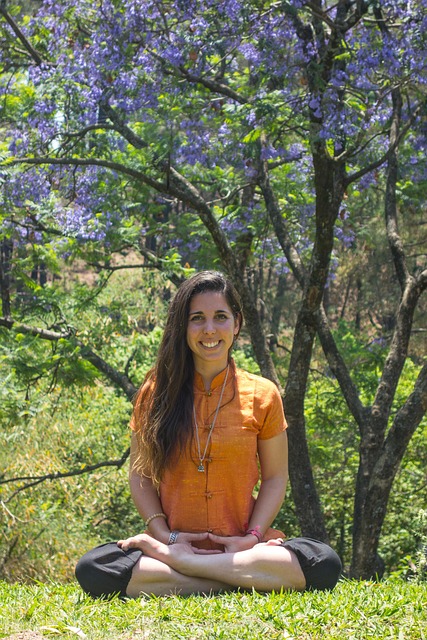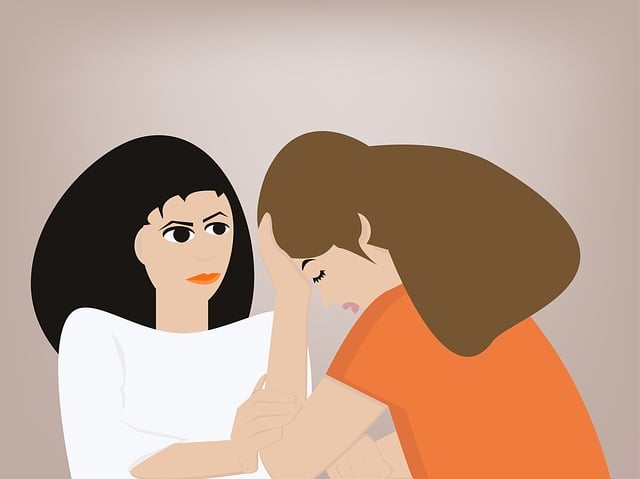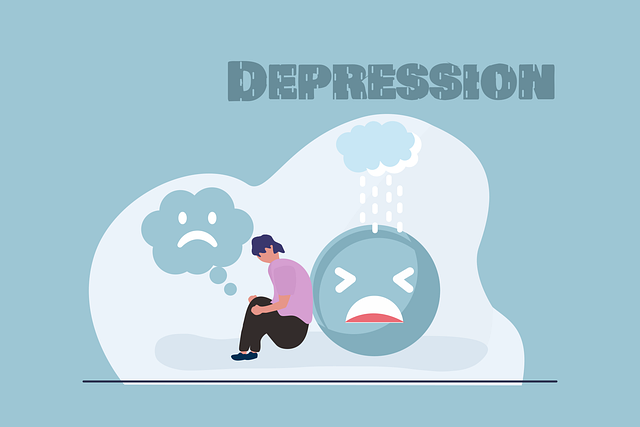In Louisville, specialized mental wellness groups for individuals with developmental disabilities play a crucial role in addressing an often-overlooked segment of the population in traditional therapy settings. These groups promote mental health, reduce stigma, and enhance coping strategies through supportive environments, evidence-based techniques, peer support, and open communication. Effective facilitation involves active listening, clear language, non-verbal cues, and empathy building to create a safe and inclusive space. Activity-based approaches transform sessions, maintaining engagement and promoting mental wellness. Measuring success through feedback, Mental Wellness Journals, and a podcast series ensures ongoing documentation and supports program development like Mental Wellness Coaching for Louisville Developmental Disability Therapy.
“Enhancing mental wellness among individuals with developmental disabilities in Louisville has become a focal point for therapists and caregivers. This article delves into effective group facilitation techniques tailored to Louisville’s unique needs, focusing on strategies that foster inclusive environments. We explore communication methods, activity-based approaches to boost engagement, and metrics for tracking progress over time. Understanding the dynamics of mental wellness groups is crucial for Louisville developmental disability therapy, offering a holistic path to improved well-being.”
- Understanding Mental Wellness Groups for Individuals with Developmental Disabilities in Louisville
- Effective Communication Strategies for Group Facilitators
- Creating a Safe and Inclusive Environment: Key Techniques
- Utilizing Activity-Based Approaches to Enhance Participation
- Measuring Success and Tracking Progress Over Time
Understanding Mental Wellness Groups for Individuals with Developmental Disabilities in Louisville

In Louisville, understanding mental wellness groups for individuals with developmental disabilities is crucial in addressing a significant segment of the population often overlooked in traditional therapy settings. These specialized groups play a pivotal role in promoting mental health and well-being among folks navigating developmental challenges alongside mental illness. By fostering a supportive environment, these groups aim to reduce the stigma associated with mental illnesses, encouraging open discussions and peer support.
Facilitated by trained professionals, the sessions incorporate various evidence-based techniques such as conflict resolution training and mental health education programs designed specifically for this demographic. The goal is not only to enhance coping strategies but also to build resilience and improve overall quality of life. Louisville Developmental Disability Therapy groups contribute significantly to Mental Illness Stigma Reduction Efforts, creating a network of understanding and solidarity among participants while equipping them with valuable Conflict Resolution Techniques essential for navigating interpersonal interactions.
Effective Communication Strategies for Group Facilitators

Effective communication is a cornerstone for successful group facilitation, especially when working with diverse populations such as those seeking Louisville developmental disability therapy. Facilitators must employ strategies that foster open and inclusive dialogue, ensuring every member feels heard and valued. Active listening is a powerful tool; it involves giving undivided attention to each participant’s thoughts and feelings, paraphrasing, and asking clarifying questions to demonstrate understanding. This creates a safe space for individuals to express themselves honestly, fostering a sense of community.
Additionally, facilitators should utilize clear and concise language, adapting their communication style to suit the group’s dynamics. Incorporating non-verbal cues, such as maintaining eye contact and using appropriate body language, enhances understanding and engagement. Encouraging participants to share their experiences through storytelling or creative outlets can provide valuable insights into their mental health journeys. These approaches not only improve communication but also contribute to a more comprehensive understanding of the group’s collective needs, particularly when considering the design of mental health education programs or risk assessments for professionals.
Creating a Safe and Inclusive Environment: Key Techniques

Creating a safe and inclusive environment is paramount when facilitating groups focused on mental wellness, especially in contexts like Louisville Developmental Disability Therapy. Key techniques include active listening and open communication to foster trust and understanding among participants. Using non-judgmental language and encouraging anonymous contributions ensures everyone feels comfortable sharing their experiences and emotions freely.
Empathy building strategies play a crucial role in this process. Techniques such as reflecting feelings, paraphrasing thoughts, and validating emotions help group members feel seen and heard. Incorporating self-care practices within the group dynamic can also mitigate burnout prevention, promoting resilience among participants. By creating an atmosphere of acceptance and support, facilitators enable individuals to explore their mental health journeys at their own pace, ultimately enhancing the therapeutic experience.
Utilizing Activity-Based Approaches to Enhance Participation

In facilitating mental wellness groups, especially with individuals from Louisville Developmental Disability Therapy backgrounds, Activity-Based Approaches prove highly effective in enhancing participation and engagement. These techniques transform traditional group therapy sessions into interactive experiences, fostering a sense of community and shared learning. By incorporating creative activities, such as art, music, or role-playing scenarios tailored to the participants’ interests and abilities, facilitators can capture and maintain attention, making therapy both enjoyable and impactful.
This approach not only combats potential burnout among healthcare providers implementing Burnout Prevention Strategies for Healthcare Providers but also promotes Mental Wellness within the group dynamic. Through activities that encourage collaboration, problem-solving, and emotional expression, participants can develop Conflict Resolution Techniques, enhancing their coping skills and interpersonal understanding. The Louisville Developmental Disability Therapy context is particularly benefited by these methods, as they cater to diverse learning styles and promote inclusivity in a supportive environment.
Measuring Success and Tracking Progress Over Time

Measuring success and tracking progress are vital components of any therapeutic journey, including Louisville Developmental Disability Therapy. Facilitators can employ various techniques to assess the effectiveness of group sessions over time. One method is through regular feedback from participants, which provides valuable insights into their personal growth. This feedback can be gathered through anonymous surveys or open discussions, allowing individuals to share their experiences and highlight improvements in their mental wellness. Additionally, keeping a Mental Wellness Journaling Exercise Guidance can offer a detailed record of each participant’s progress, where they reflect on lessons learned, challenges faced, and coping strategies adopted.
To enhance this process, the production of a Mental Wellness Podcast Series can be an innovative way to showcase the group’s journey. Capturing interviews, discussions, or even personal stories from members can create an engaging narrative, demonstrating their transformation over time. This medium not only allows for ongoing documentation but also provides a platform to reach and inspire others within the community who may benefit from similar support programs, such as Mental Wellness Coaching Programs Development.
Mental wellness group facilitation in Louisville for individuals with developmental disabilities requires a thoughtful, inclusive approach. By mastering effective communication strategies, creating safe spaces, leveraging activity-based approaches, and consistently measuring progress, facilitators can significantly enhance the well-being of participants. These techniques not only support the unique needs of this community but also foster a supportive environment that encourages growth and participation in Louisville developmental disability therapy.














